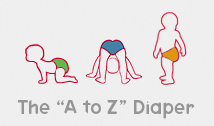Parent to Parent Tips
Parenting well means keeping the end in mind. As a busy mom, I know the difficulties of being so caught up in the moment and how quickly I want to resort to lazy parenting when lack of sleep and adult conversations are kicking my patience out the door. The truth is, healthy adults are assertive, confident, take responsibility for their choices, and are emotionally connected with themselves and others. Therefore, as we parent, the little things we encounter with our children throughout the day can be active building blocks to creating such a healthy adult. Here are a few tips to get you started!
Focus on Feelings
Young children are sensory-oriented and have yet to develop the cognitive part of their brains. Though they are learning and absorbing information at every turn, most of a young child's way of relating to the world is through what they sense – and feelings are a way of truly connecting. Getting eye-level with your child and reflecting their emotions, not only validates and communicates love and care, it also helps your child attune to their own and other's feelings. This can look like: “I see you are frustrated that you cannot get on your bike by yourself.” Or, “Look how happy you are when you dance!”
Seeing the world through your child's eyes can also restore your sense of joy for life. When we begin to relate to our children through how they feel, we can rekindle feelings we have let lay dormant as adults from years of wear and tear. One of the gifts of parenting is that our children are not the only ones who get to grow!
Quality Play Time
Quality play time with your child not only instills a deep sense of worth, but can help reduce unwanted behaviors as well. Negative behaviors from children tend to be a response to deeper unmet needs or concerns. We can easily find ways to end negative patterns, but without meeting a child's deeper needs, the results will be short-lived and a child only learns to change behavior based on external ques.
Uninterrupted play time with each of our children communicates a message that he or she IS important to you…even more important than the phone, chores, and work. Play also speaks your child's language. Play is to a child like words are to adults. When a parent consistently takes time to be with a child through the joy of play, the child feels known, heard, seen, and cared for (Dr. Daniel Sweeney, Ph.D, LPC, RPTS, LMFT). Every child longs to be the apple of a parent's eye and quality play time gives this meaning.
Try to give 30 minutes of individual play time to each of your children each week.
Giving Choices
Giving choices develops a child's sense of internal responsibility and confidence to be assertive. For example: “You can choose, Addie, to eat apples or you can choose to eat raisins for lunch. Which do you choose?” You can begin this use of language way before a child is able to understand. It helps you practice for when choices really begin to have huge effects on your child. As you help your child make choices when they are young and the consequences are minimal, your are setting your child up with the confidence to make harder choices when the consequences can be matters of life and death (teenage years).
Choices can be used even in the case of discipline. For example: “You can choose to obey mommy and stay in bed or you can choose to take a timeout. Which do you choose.” OR “If you choose to stand on the chair, you choose to not be able to watch your show. If you choose to sit on your chair, then you choose to watch your show. Which do you choose?” Simply speaking the words, “you choose”, helps to develop an inner sense of responsibility and self-discipline. The greatest challenge for us parents is to make sure we follow through on the consequences. If a child chooses to stand on the chair, then you turn off the show and let them know they chose.
In real life, consequences follow every choice we make. We are not helping our children when we “protect them” from the natural consequences that follow their choices as young ones. (material adopted from “Oreo Principle" by
Dr. Gary Landreth, Ph.D.)




